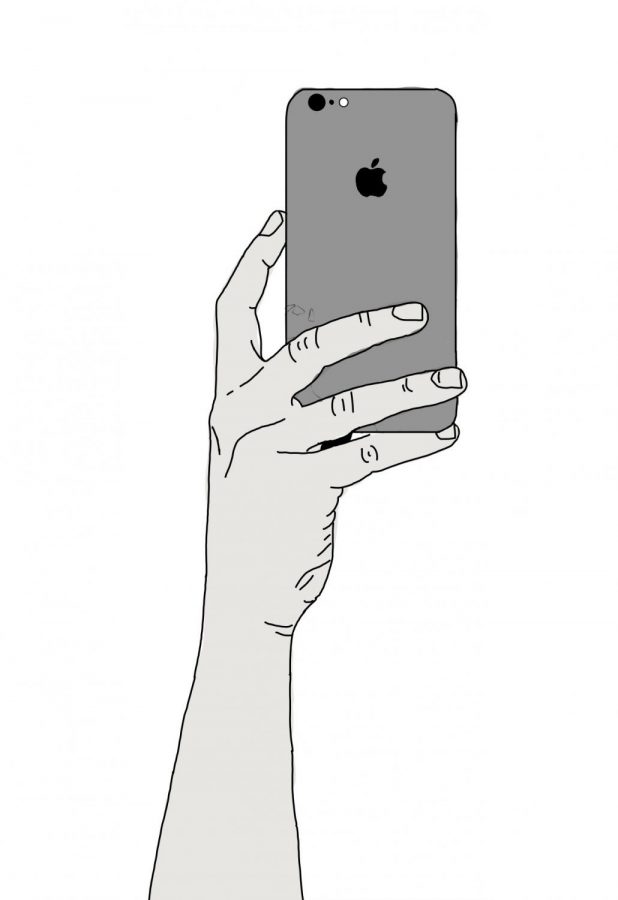How Young is Too Young For an IPhone?
Kids are getting technology at younger ages every year; should parents take a stand?
More stories from Ellie Johnson
Children are receiving phones at a younger and younger age. So, how young is too young for an iphone?
Look around. You can’t pass five people without four of them having their noses buried in a phone, and this is not limited to teenagers and millennials. Young children have been given phones earlier and earlier, some now getting them when they are as young as four years old. A recent survey conducted by Voucher Cloud of nearly 2,300 parents found that “the average age children receive their first cell phone is 6 years old, and 53 percent of children have a cell phone by the time they turn 7.” While giving children phones seems wrong to many of us, teenagers having them is the norm, so what is the right age?
According to PewResearch Center, the “optimal” time to give children cell phones is around the age of 13, but it varies from kid to kid depending on circumstances and their responsibility. If the child is being transported from activity to activity by different people, it might be helpful for the parent to have a means of communication with them regardless of the child’s age.
However, there are many dangerous aspects of a cell phone that parents should consider when planning that trip to Apple. To start, according to Danielle Cohen, writer for Child Mind Institute, us as humans are not meant to be communicating with others through a screen, so it takes time to understand that others read what you type. Considering this, many children don’t fully understand what they message or post, accidentally bullying others.
Similarly, there are dark sides of the internet that children are better off not being exposed to. That being said, there are ways to limit the kid’s interaction with the aspects of a cell phone that they are better off not having like Safari, Instagram, Snapchat, or even the Camera app. These tools can be very beneficial and might justify giving a young child a phone because it limits the abilities of the phone to ones only used for safety purposes.
No matter how responsible the child is or how limited the abilities of the cell phone are, the physical impact of a cell phone is still dangerous enough to seriously deter a parent from buying their kid a phone. Cell phones emit radio Frequency-Electromagnetic Radiation, otherwise called microwave radiation, and this radiation is proved by the National Center For Health Research to have several negative effects on a person’s behavior and brains, even causing tumors and possibly being carcinogenic. The terrifying part of exposing a child to this radiation is that their brains are impacted far more drastically than an adult’s. The National Center For Health Research says, “This is because children have proportionally smaller heads and brains, yet receive the same levels of cell phone radiation as adults.” This dangerous radiation puts children in serious danger, so it becomes imperative to think critically about the decision to give a child this source of health problems.
To continue, there are aspects of constantly having a screen with you that can be detrimental to the development of a child. Dr. Jennifer Cross, a child behavioral expert, said, “We can hypothesize that screens could inhibit certain aspects of a child’s development by narrowing their focus of interest and limiting their other means of exploration and learning.” While adults must always be in touch with others, part of being a child is not having to be tethered to the world around them. There’s a beauty in a child’s wonder as they live life in their own imagination that constant access to a phone takes away.
Think of your favorite childhood memories. I can almost guarantee that none of them are when you were on your phone. Memories are made out in the world with people, not on an iPhone. Like Walt Disney, an American motion-picture producer, said, “There are no seven wonders of the world in the eyes of a child. There are seven million.”




